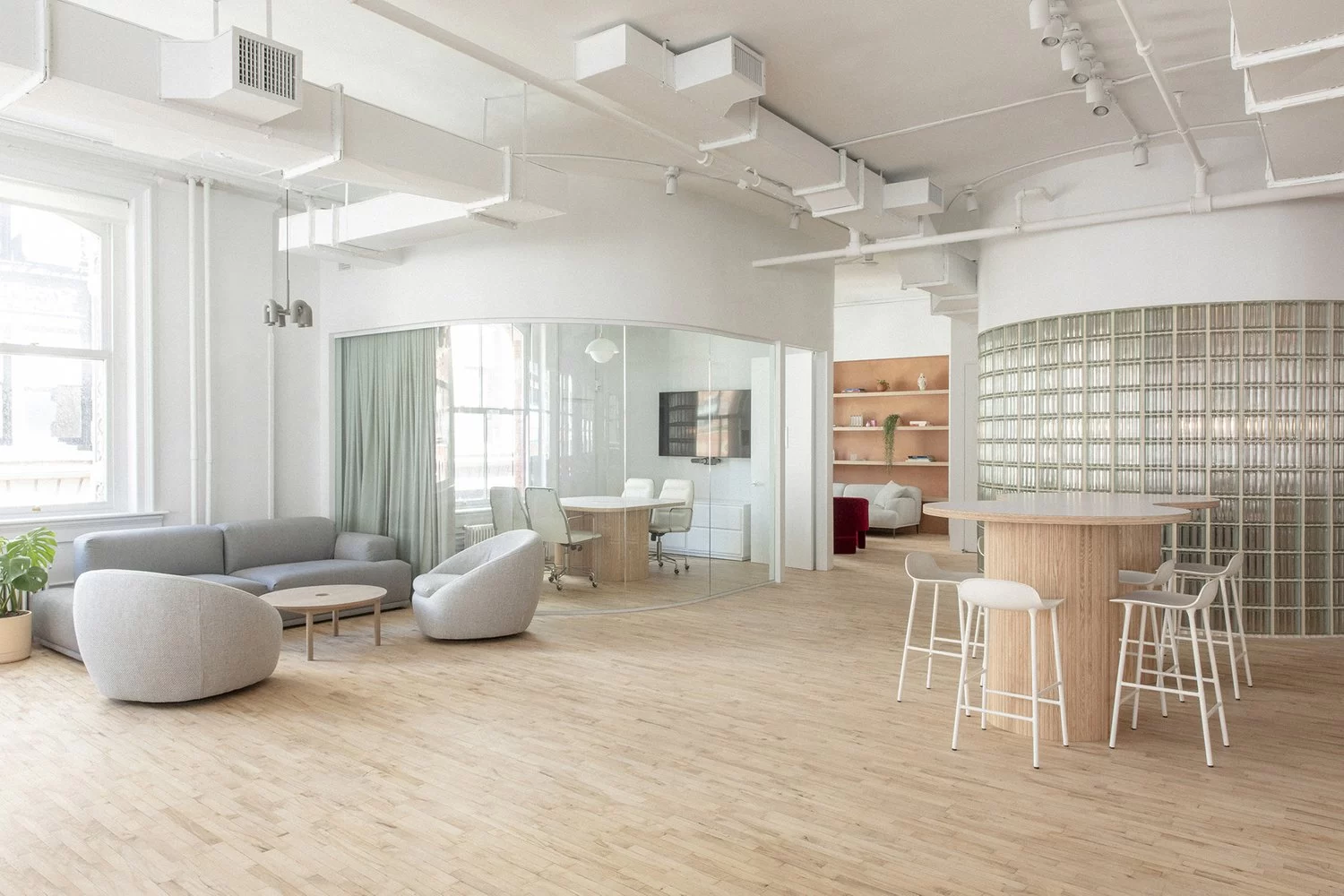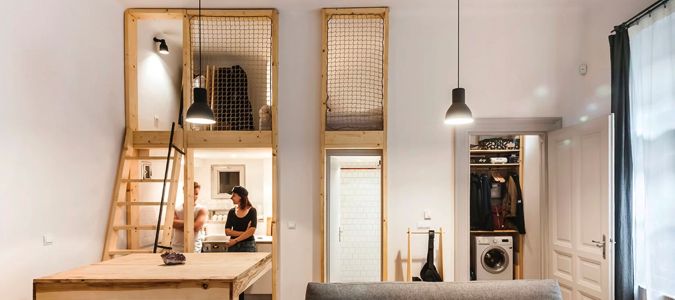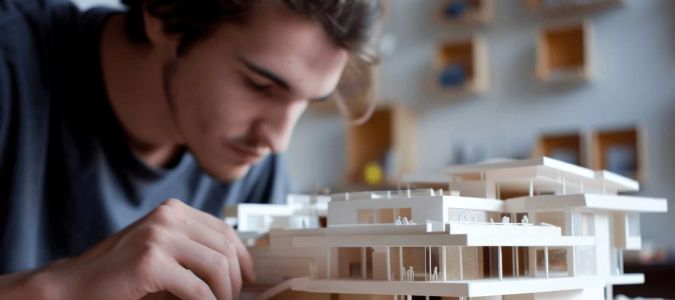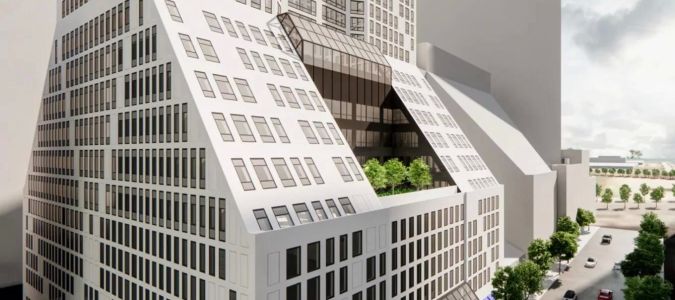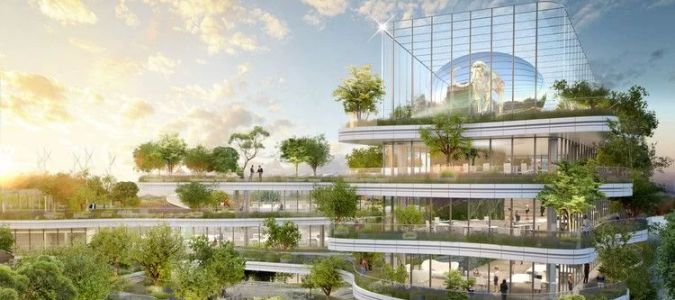Design-Centric Office Spaces in Brooklyn: Crafting Creative and Functional Work Environments
- Introduction: The Rise of Design-Centric Office Spaces
- Benefits of Design-Centric Office Spaces
- Key Elements in Designing Office Spaces
- Case Studies: Design-Centric Offices in Brooklyn
- Choosing the Right Design-Centric Office Space
Brooklyn, a borough renowned for its creativity and innovation, has become a hotspot for design-centric office spaces. These offices are not just about functionality—they focus on aesthetics, employee well-being, and creating an inspiring environment for collaboration. In this article, we explore why design matters in office spaces, how it can influence productivity, and highlight some of the most iconic design-centric office spaces in Brooklyn.
Benefits of Design-Centric Office Spaces
Design-centric office spaces offer a variety of benefits that can positively impact businesses, employees, and the overall work culture.
1. Increased Employee Productivity
Well-designed office spaces can boost employee morale and productivity. An environment with plenty of natural light, comfortable seating, and ergonomic designs helps reduce stress and improve focus. Employees are more likely to stay motivated and engaged when their surroundings are aesthetically pleasing and functional.
2. Improved Collaboration
Open-plan designs and creative spaces foster collaboration and teamwork. A design that encourages fluid communication and the sharing of ideas can enhance creativity and innovation. This is particularly important in industries like technology, design, and marketing, where brainstorming and collective problem-solving are integral to success.
3. Attracting Top Talent
A modern, well-designed office space can act as a powerful recruiting tool. Potential employees are drawn to companies that prioritize aesthetics and employee comfort. Offices with stylish interiors and thoughtful layouts help create a positive first impression and show that a company cares about its employees' well-being.
4. Enhancing Brand Identity
Design-centric office spaces can reflect a company’s culture and values. The right interior design elements, such as company logos, color schemes, and furniture, help reinforce brand identity. A space that aligns with a company’s brand messaging can strengthen its overall presence and create a more memorable experience for clients and visitors.
Key Elements in Designing Office Spaces
Designing an office space goes beyond choosing trendy furniture and decor. Several key elements should be considered to create a balanced, functional, and aesthetically pleasing workspace.
1. Layout and Floor Plan
The layout of an office space is critical in promoting workflow and communication. Open-plan offices with flexible workspaces encourage collaboration, while private areas provide quiet spaces for focused tasks. Incorporating meeting rooms and break areas is essential for a well-rounded work environment.
2. Lighting
Lighting is a fundamental aspect of office design. Natural light is ideal for creating a welcoming and productive atmosphere. However, strategic artificial lighting can also make a significant difference. Adjustable lighting and well-lit task areas ensure that employees can work comfortably throughout the day.
3. Furniture and Ergonomics
Comfortable and ergonomic furniture is essential for employee well-being. From sit-stand desks to adjustable chairs, thoughtful furniture choices can reduce physical strain and support healthy working habits. An office with well-chosen furniture also contributes to the overall aesthetic of the space.
4. Biophilic Design
Biophilic design involves incorporating natural elements into office spaces to improve air quality, reduce stress, and increase productivity. Green walls, indoor plants, and nature-inspired materials help create a soothing and revitalizing environment. This is especially important in urban areas like Brooklyn, where access to nature can be limited.
Case Studies: Design-Centric Offices in Brooklyn
Brooklyn has become a leading city for innovative, design-forward office spaces. Here are a few examples of spaces that exemplify the best in office design:
1. 10 Jay Street
Located in the heart of Brooklyn, 10 Jay Street is a prime example of a design-centric office space. The building combines historic architecture with modern interiors, offering flexible office layouts, ample natural light, and stunning views of the Manhattan skyline. Its thoughtful design enhances both productivity and collaboration, making it a sought-after destination for innovative businesses.
2. The Brooklyn Navy Yard
The Brooklyn Navy Yard is a dynamic, creative workspace that has transformed an industrial complex into a hub for startups, tech companies, and designers. The space features open work areas, collaborative hubs, and sleek, contemporary design elements that inspire creativity and foster innovation. It serves as a perfect example of how adaptive reuse and modern design can coexist in a way that benefits both companies and the community.
3. WeWork Dumbo Heights
WeWork’s Dumbo Heights location offers a flexible, collaborative workspace with beautiful design touches that blend Brooklyn's industrial charm with contemporary aesthetics. The spacious, open design, coupled with cozy lounge areas and modern amenities, creates a dynamic environment that attracts both small teams and large enterprises.
Choosing the Right Design-Centric Office Space
When selecting a design-centric office space in Brooklyn, it's essential to consider your company's needs and the type of work culture you want to promote. Look for spaces that align with your brand identity and prioritize employee comfort. Think about layout, lighting, and furniture to ensure your office is both functional and inspiring.
If you're interested in exploring Brooklyn’s design-forward office spaces, consider visiting 10 Jay Street. This space offers the ideal blend of creative energy, professional functionality, and architectural elegance.



